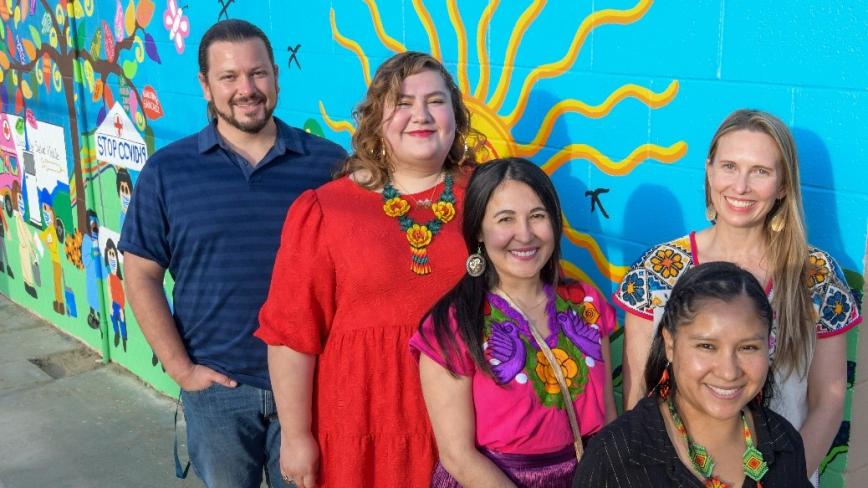University of California Health’s academic health centers and faculty practices provided $4.1 billion in FY 20-21 in programs, activities and care to treat and promote health and healing in communities across California.
The net community benefits from UC’s academic health centers, excluding Medicare related items, equates to 10.2 percent of their operating expenses.1 This level of community benefits puts the UC academic health center system in the 75th percentile of California not-for-profit hospitals that have more than 230 beds.
“Delivering on programs and investing in resources that advance the health of our communities is fundamental to our public mission,” said Carrie L. Byington, M.D., executive vice president of University of California Health. “The results of partnerships with local organizations are especially rewarding because they help ensure our work is addressing the specific needs of our communities and improving the health of Californians.”
The FY 20-21 community benefits detailed in this year’s report included:
- $1.64 billion in net community benefits from UC academic health centers
- $1.72 billion in uncompensated costs for care of Medicare patients at UC hospitals
- $0.76 billion in charity care and uncompensated costs for care of Medi-Cal and Medicare patients at UC faculty practice groups.
Additionally, UC has 20 health professional schools that provide many substantive benefits to communities throughout the state and beyond.
University of California Health reports on community benefits annually to provide transparency about activities throughout the UCH system. The report follows guidelines published by the Internal Revenue Service for tax-exempt, non-profit academic medical centers. The standardized reporting enables transparency about the community benefits being delivered and facilitates comparisons to benchmarks for other tax-exempt, non-profit academic medical centers. UC’s academic health centers are not required to file reports related to the community benefits annually with the IRS.
Community benefits are programs or activities that provide treatment or promote health and healing as a response to identified community needs. Community programs across the system are developed with input gathered from Community Health Needs Assessments (CHNAs) that are completed every three years to guide health organizations in acting upon unmet needs.
Examples of community benefits include free or discounted health services, unreimbursed costs for care to Medi-Cal recipients, health professions education, subsidized health services, research, and financial or in-kind support for non-profit community organizations. These efforts advance UC’s mission of patient care, research and education.
Programs at UC academic health centers focus on:
- Providing vital support to improve population health and achieve strategic objectives related to the quality, efficiency, and affordability of healthcare;
- Highlighting the significant resources devoted to providing access to care for low-income and other underserved patient populations; and
- Helping to advance knowledge through health professions education and research that benefits the public.
Examples of these programs in FY20-21 include:
- UC Davis Health has been offering an annual highly acclaimed mini-medical school program for nearly 20 years, featuring UC Davis School of Medicine faculty providing free classes to the public. The program was expanded in 2021 to address the unique needs of Sacramento’s population of Vietnamese origin.
- UCI Family Health Center used telehealth technology to provide dental care during the pandemic by triaging patients, providing treatment plans and giving referrals for acute dental problems. The center’s efforts also focused on engaging pregnant women – a group more hesitant to seek dental care during the pandemic – and led to better pregnancy health outcomes combined with good oral health.
- UCLA Health partnered with UC Irvine Health and Children’s Hospital of Orange County to coordinate and administer comprehensive health care for unaccompanied migrant children aged 3-17 years at Long Beach Convention Center Emergency Intake Shelter. During a three-month period, the care teams completed more than 5,875 urgent care visits and provided complete medical examinations for the 1,698 children housed at the shelter. More than 3,500 vaccinations were given.
- UCR Health’s Coachella Valley Free Clinic engages a team of community health workers known as promotoras to deliver clinic services and provide medical services to primarily Spanish-speaking patients. In 2021, the work included COVID-19 testing clinics, COVID-19 Platicas en el Pueblo (Talks in the Community), flu clinics and workshops on behavioral health services implementation.
- UC San Diego Health operates the University of California Health Milk Bank, which received Human Milk Banking Association of North America accreditation in August 2020. It is the only accredited milk bank in Southern California and is one of only 31 nonprofit milk banks in North America. During 2021, service coverage grew statewide through all six UC academic health centers.
- UCSF partners with the San Francisco Mayor’s Opportunities for All to offer paid work-based learning opportunities for youth and young adults in the fields of psychiatry and behavioral sciences through the Community Health Advanced by Next Generation Efforts in San Francisco program. By connecting mentors and mental health professionals with a diverse group of young people in San Francisco, the initiative addresses a lack of diversity in the profession and the stigma and lack of access to services in minority communities.
1For UCR Health, only community benefit expenses for the faculty practice group are included in the report.
About University of California Health
University of California Health (UCH) comprises six academic health centers, 20 health professional schools, a Global Health Institute and systemwide services that improve the health of patients and the University’s students, faculty and employees. All of UC’s hospitals are ranked among the best in California and its medical schools and health professional schools are nationally ranked in their respective areas.

